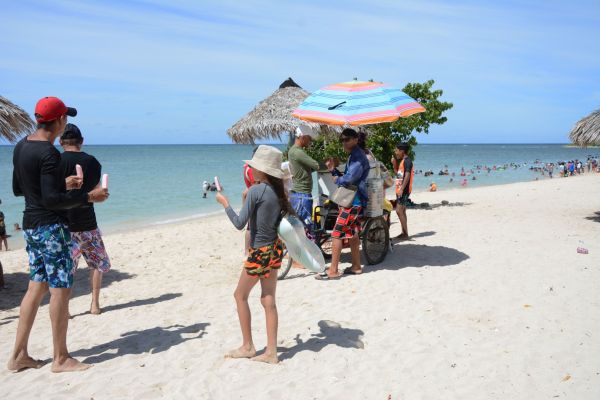
Sancti Spíritus is already involved in minimizing the effects of climate change with the implementation of about 140 actions in 2018, mainly in the three most prioritized municipalities
In order to implement the State Plan issued to address climate change —known as Tarea Vida (Project Life), approved April 25, 2027, by the Council of Ministers—, several comprehensive actions have been launched in Sancti Spiritus, central Cuba, in priority areas such as the coastal settlements of Tunas de Zaza-Médano (Sancti Spiritus), Casilda (Trinidad) and the rice growing regions to the south of La Sierpe (Municipality of the same name).
According to the program designed by the Council of Provincial Administration (CAP, in Spanish), last year the bodies and entities involved in fostering these efforts implemented nearly 140 actions aimed at reducing climate impact in view of the vulnerabilities identified in the studies and researches carried out.
In its report on this issue, the Provincial Delegation of the Ministry of Science, Technology and Environment (Citma, in Spanish) explained that among the measures implemented are the prohibition of the construction of new houses in threatened coastal settlements, the search for alternative locations for the population of Tunas de Zaza-Médano and the preparation of partial plans taking into account the customs and jobs of its inhabitants.
Several aerial videos have been filmed that serve as a starting point and source of information for studies evaluating current impacts and vulnerabilities in these coastal populations. On the other hand, sociological studies have been conducted on the perception of flood risk along with community activities related to environmental education, including mangrove planting.
In the Sur del Jíbaro areas (Municipality of La Sierpe), soil salinity is faced with the introduction of rice varieties with better tolerance and adaptability, in addition to high yields. Likewise, advanced technologies have been applied to level the areas in search of increasing the efficiency of surface irrigation systems. The maintenance of dozens of kilometers of canals for better water management also counts.
A research carried out in the Ancón Peninsula (Trinidad), led to the estimation of one meter of sand loss per year due to erosion, therefore, measures are being fostered such as the search for sandy basins, the rehabilitation of that area with anti-erosive measures in front of the Hotel Ancón and the restoration of typical vegetation throughout the peninsula.
 Escambray ENGLISH EDITION
Escambray ENGLISH EDITION





Escambray reserves the right to publish comments.